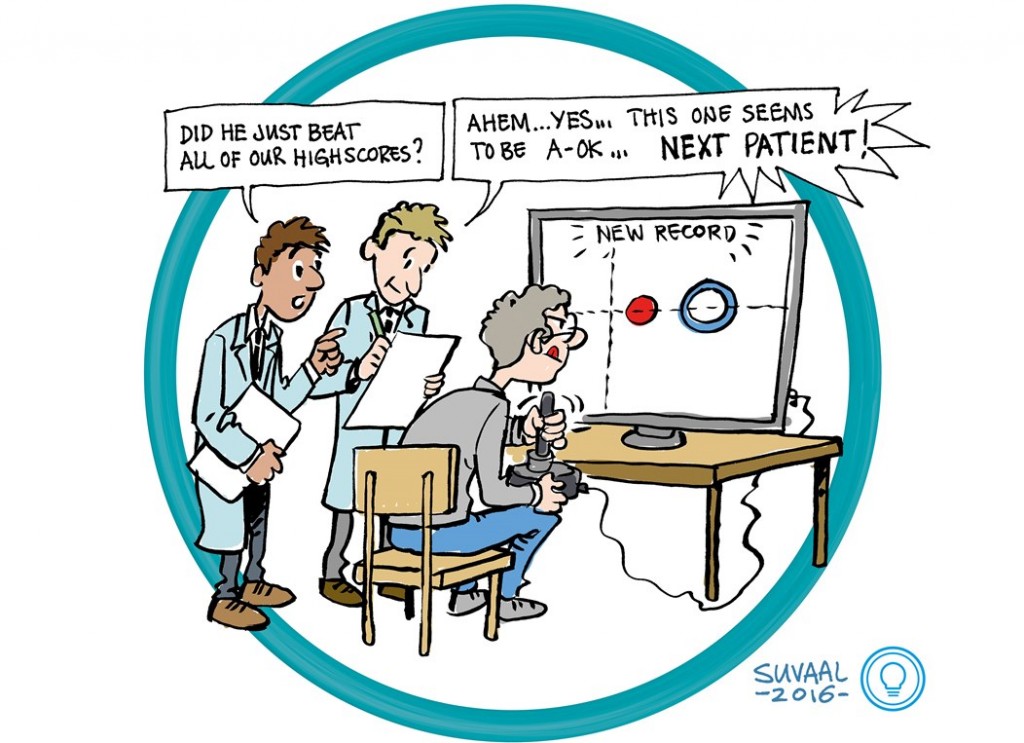Detailed and quantitative measurement of lost motor skills in neurological diseases such as Parkinson’s using human control modeling.
Neurological disorders, such as Alzheimer’s and Parkinson’s diseases, are known to affect the brain’s mechanisms for integrating the different sources of sensory information and for generating appropriate motor commands. At the Neuroscience department of the Erasmus Medical Center in Rotterdam, eye-hand coordination tests have recently been developed for the non-intrusive early detection of such disorders from measured degradations in eye-hand coordination. These same eye-hand coordination and motor control skills are relied on by human controllers in skill-based tracking tasks. For well-designed tracking tasks, it’s possible to objectively quantify the human controller’s dynamics (e.g., delays, control gains, lead/lag equalization) using human controller modeling and system identification techniques. Thereby, tracking tasks have been shown to allow for unprecedented insight and for unique quantitative analysis of human manual control skill.
The goal of this project is to develop a tracking task that may be used as an additional functional diagnostic tool for the detection of degraded eye-hand coordination in patients that suffer from loss of motor skills (e.g., Parkinson’s, Alzheimer’s). Data from patients is collected at the Erasmus MC in Rotterdam.



